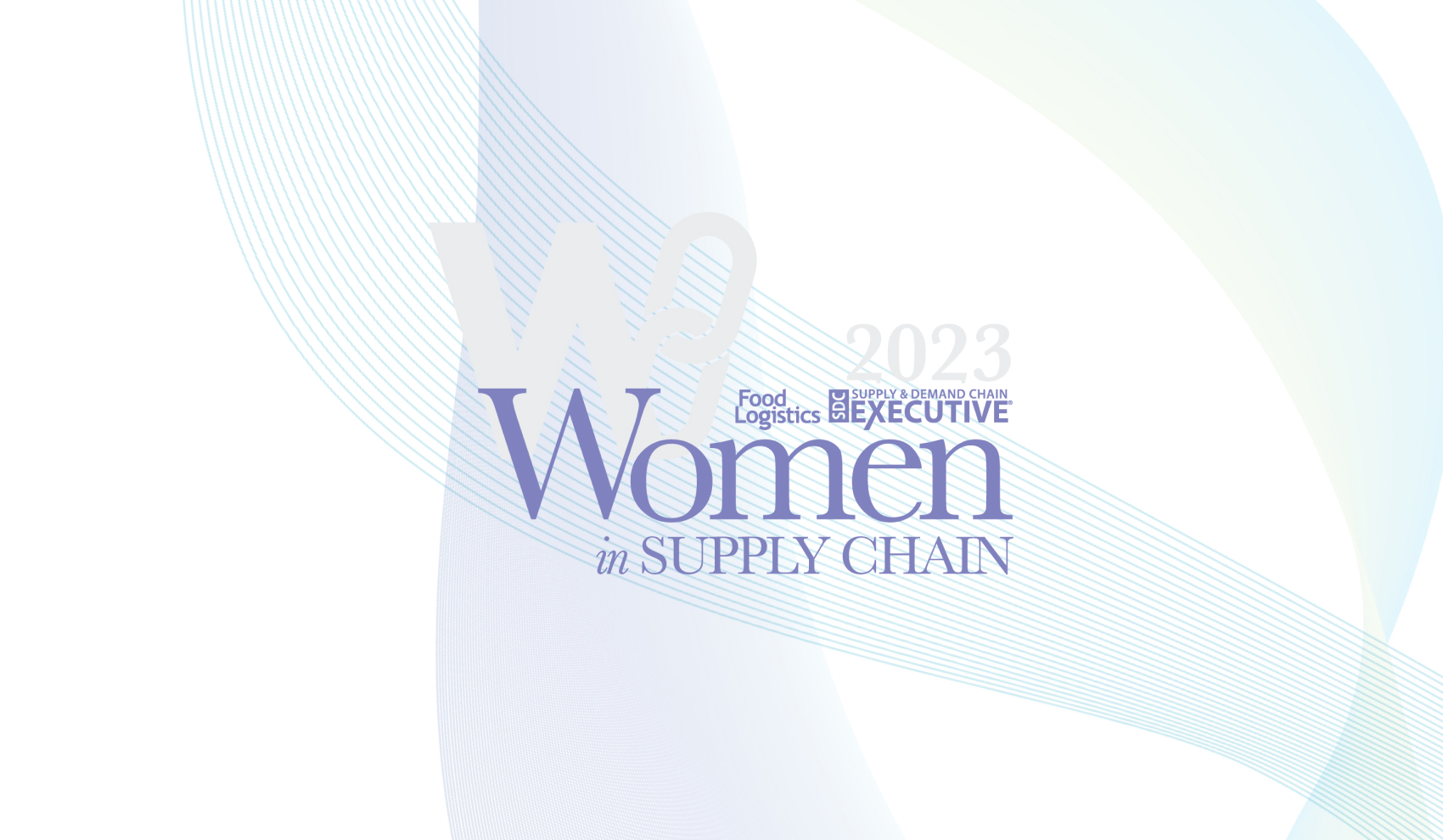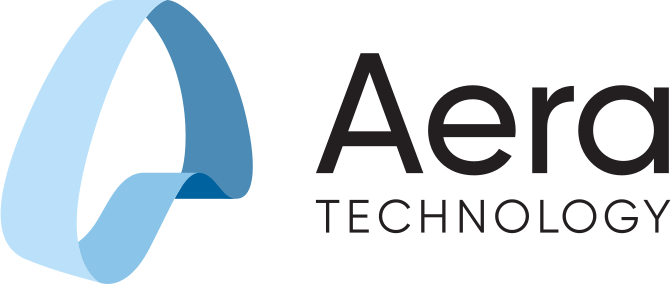Women in Innovation: A Q&A on Leadership and the Future of Supply Chain

This week, Supply & Demand Chain Executive and Food Logistics announced the winners of the 2023 Women in Supply Chain Award. Among this year’s honorees are three leaders from our company: Lalitha Sundaramurthy, senior vice president, head of product; Alison Crawford, senior director of product marketing; and Archana Ravi, director of solution engineering.
This year’s award shines a light on the women “behind the lines, on the field and out on the road” who keep products and materials flowing, and those who create the systems that improve the world’s supply chains. We asked our three award winners to share their stories of how they achieved success, what inspired them to follow careers in supply chain technology, and their advice for the young women who will become the next generation of leaders.
Q: What inspired you to choose a career in technology that benefits the world’s supply chains?
Lalitha: I spent the early years of my career working in “plumbing,” also known as data integration, at Informatica. I worked with large enterprises ensuring their data integration pipelines were running smoothly and providing the right data at the right time to business users making decisions. This helped me understand the inherent complexities and challenges of working with data, and I realized my true passion is in building products with innovative solutions to these challenges.
I moved to Product Management and led many innovations and improvements in the data integration and virtualization space. As I worked closely with customers, I saw that even when they had the best data integration, analytics, and data science tools, making a decision was still cumbersome and manual. This problem had to be thought about entirely differently.
This led to my move to Aera Technology, with a grand vision of delivering an end-to-end Decision Intelligence platform. Solving some of the world’s most complex supply chain problems, and seeing the huge impact this can have on human lives, inspires me to keep going!
Alison: Honestly, I was in the right place at the right time to take advantage of the opportunities that presented themselves. I hadn’t originally intended to work exclusively in supply chain, or even technology. But I am a voracious information sponge, and I’ve seen how everything is interconnected.
I started my career as an market research analyst, and I enjoyed the problem solving portion of that role. I would be attracted to roles where I could learn new skills or try new projects, and was guided towards this space through relationships I’d built over time.
When I started, pre-pandemic, “supply chain” was not a common or well-understood term. Post-pandemic, it’s easier for me to explain to people what I do and why it matters. Ultimately, I found my way to supply chain through a series of opportunities, but I stay working in supply chain because I truly believe that through sustainability, great strategy, and emerging technologies, supply chains that run well can save the world and make lives better.
Archana: I started my career with PricewaterhouseCoopers in a business strategy role. Doing so, I realized that having meaningful and pertinent data is a fundamental need in order to construct impactful, viable recommendations and proposals.
I then pivoted to a role with Unilever that focused on building business insights from data across the sales and supply chain functions. There, I came to appreciate the pivotal role played by supply chains, irrespective of industry – acting almost as the backbone, connecting vendors to finished products, and to consumers.
As I immersed myself in supply chain, I noticed that a lot of the business output used in decision making was historical and descriptive in nature. Even when a future plan is generated through advanced planning solutions, this still leaves the community to understand context and exceptions, then make thousands of decisions manually across the value chain and act on them on a daily basis.
I realized the transformative power of combining cutting-edge technology with supply chain, including benefitting the workforce, tangibly reducing carbon footprints, and more. This inspired me to pursue a career in supply chain technology. Having a positive impact in this space is the legacy I would love to leave behind for the generations to come.
Q. As a leader in the growing field of AI and Decision Intelligence, what do you find most exciting about the impact this technology is having?
Lalitha: I am thrilled to see the improved efficiency with which the decisions are being made within an organization. The use of a Decision Intelligence platform with embedded AI – continuously monitoring and understanding what is happening within a business, making real-time recommendations, taking action autonomously, and further learning and improving from every decision made – is having a transformational impact. People involved in decision-making processes are better equipped to make the right decisions, and are able to focus on more strategic and value-added activities instead of spending time on mundane, repetitive tasks.
Alison: I’m amazed on a daily basis by the kinds of decisions that we’re helping companies automate, and more importantly by the results they are achieving. Traditional supply chain was great at identifying problems, but with Decision Intelligence, it’s the ability to solve challenges and close the loop – enabling people to move on to more interesting and strategic problems – that motivates me every day to educate the market on the art of what’s possible.
Archana: First, technology’s ability to drive growth and simplify supply chain complexity – driven by evolving consumer needs and customization, SKU proliferation and large product portfolios and cross geography trade. This complexity became very apparent during the pandemic. Today, technology-powered supply chains are helping the world quickly adapt and respond to evolving situations.
Second, the impact of technology on human capital. For me, this goes beyond the workplace – it improves quality of life, and helps nurture communities of empowered, engaged people who find purpose in what they do. I came across a lovely quote that aptly captures this: ‘’The more digitization we see, the more human we will be.’’
Finally, sustainability is a goal for many organizations, but the missing piece is the ability to execute on this goal – how do we make it a part of the day-to-day decision making for the workforce on the ground? Decision Intelligence plays a key role here, providing the ability to weave sustainability KPIs into day-to-day decision making.
Q. How can companies (both in technology and elsewhere) support the next generation of women in Supply Chain leadership?
Lalitha: Companies can do several things to support the next generation of women in supply chain leadership. They need to ensure that diversity and inclusion are deeply ingrained into the culture of their organization. There needs to be equal opportunity for women and men for career advancement and leadership positions. Companies need to provide mentorship opportunities for women starting their careers so that they can learn and get guidance from other experienced women leaders within the organization.
Alison: It goes beyond just supporting women once they get to the organization. It’s proactively teaching and encouraging girls, as early as grade school, that they can excel in STEM fields. It’s founding programs at organizations to engage with students to show them what’s possible. It’s encouraging women to support each other in business, rather than seeing other women as competition. While there may only be one promotion available, and you should do everything in your power to prove you’re the best fit for the role, if that role goes to another woman it’s important that you support them.
Ultimately, it’s about having more and more women in positions of leadership, to be role models and examples for the next generation of women. If you think about careers in the 60s, 70s and even 80s, women were encouraged to be the support staff for leaders. Look how far we’ve come since then, and there is still more room to grow. As of January 1, 2023, there are 53 female CEOs of Fortune 500 companies. Yet the Bureau of Labor Statistics estimates that roughly 47% of the workforce is female. So, clearly there is significant room for growth for women to attain senior leadership roles across the board. It’s important to clear the way for more women to achieve what’s possible, and encourage them to think bigger.
Archana: This needs to be a multi-pronged approach, and it has to be tackled at various levels in society. Building strong foundations in schools and colleges for STEM education for women is key. This is where investments from the public and private sectors, and having adequate funding (including scholarships for women pursuing STEM) can have a systemic impact.
Also, having the right role models for women starting out their career is important. Organizations can play a big role by offering coaching or mentoring programs – connecting women in supply chain leadership roles with women in schools and colleges who are at the formative stage in terms of their career choices and aspirations. This will result in a synergistic partnership: these women will get the right kind of nurturing and guidance, and organizations gain access to a fantastic talent pool.
Q. What advice would you give to women who are just starting their careers in Supply Chain?
Lalitha: Be bold and confident in your abilities. You don’t have to be perfect. You don’t have to absolutely know everything before you answer a question or take up a new role. This is a common trait amongst women. There have been numerous studies and experiments that have proved this. For example, one study I read found that women applied for a promotion only when they met 100 percent of the qualifications, whereas men applied when they met 50 percent. Do not let this habit pull you down. Be more comfortable with imperfection – sometimes, “good enough” is enough. Take risks and don't be afraid to try out new things!
Alison: You will often be the only woman in the room when working in supply chain, whether as a practitioner or working for a technology vendor. For that reason, it’s important to claim your space as professionally and tactfully as possible. Recognize that your insights and ideas are incredibly valid and deserve to be considered as much as those of the rest of your peers.
Find a career sponsor, which is different from a mentor. Understand that networking is as important to your future success as executing and delivering on your assigned tasks. And don’t be afraid to reach beyond your comfort zone, because when you are uncomfortable is when you grow the most.
Archana: What you knew yesterday might not be applicable today. The pace at which technology is changing is astounding and scary at times – do not be intimidated by it. Being curious and open, having a willingness to learn, and being a team player should trump the feeling of knowing all the right answers all the time.
It is okay to make mistakes – be authentic and continue learning. Your moon shot might be right around the corner. All you need to do is reach out and grab the opportunity when it comes by.
Have your own personal “board of directors.” Many of my female colleagues will testify to this: you will often find yourself lonely as you look to find your place in organizations. It’s important to have people who believe in you, who are your champions, and (most importantly) who can give you the outside-in perspective and pep up that you need, even when things seem uphill.
Lastly, I will leave you with my favorite words from a famous speech by Denzel Washington that has stayed fresh in my mind through the years: “Work hard to get it. When you get it, reach back – pull someone else up. Each one, teach one. Don't just aspire to make a living, aspire to make a difference.”








